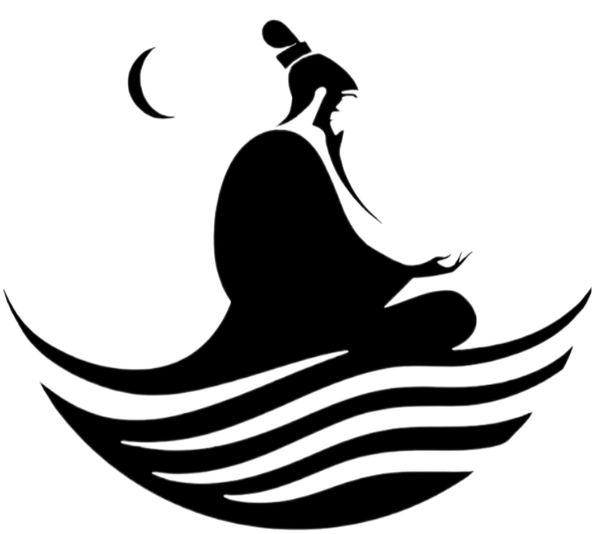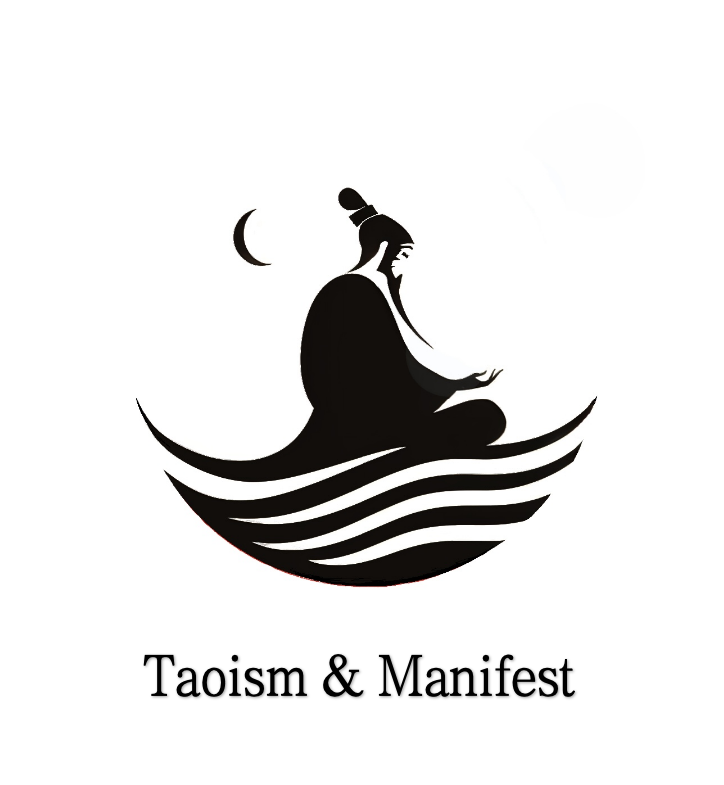
What is Fengshui and why Fengshui is important in Taoism
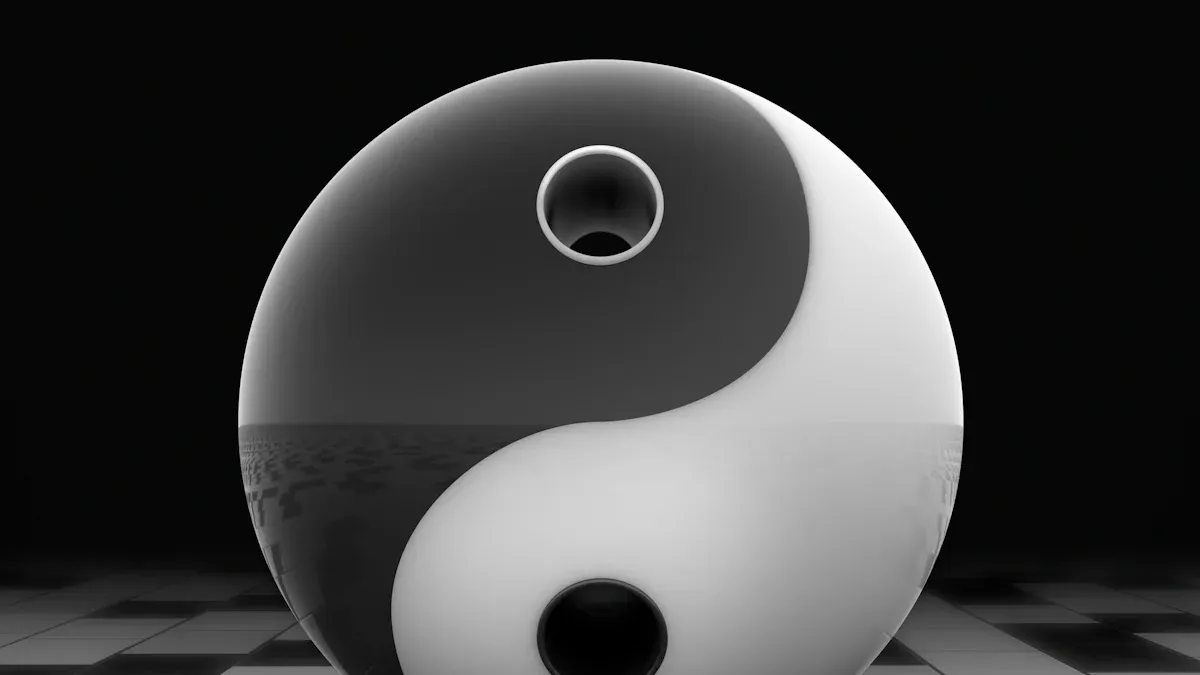
Feng shui means "wind and water." This practice comes from Taoist roots and focuses on the flow of chi, or life energy. People use feng shui to create balance in their homes and lives. Feng shui helps them find harmony with the environment. The Tao teaches that everything connects through energy. Taoist ideas show a strong connection to nature, the cosmos, and balance. Fengshui guides people to live with the Tao every day.
Key Takeaways
Feng shui means 'wind and water' and helps balance life energy called chi in homes and lives.
Core feng shui principles include balancing yin and yang, respecting nature, and using the bagua map to arrange spaces.
Taoism teaches living in harmony with nature and following the natural flow of energy called the tao.
Feng shui applies Taoist ideas by guiding energy flow in homes, offices, and gardens to create peace and well-being.
Using feng shui supports spiritual growth, brings harmony, and helps people live with the tao every day.
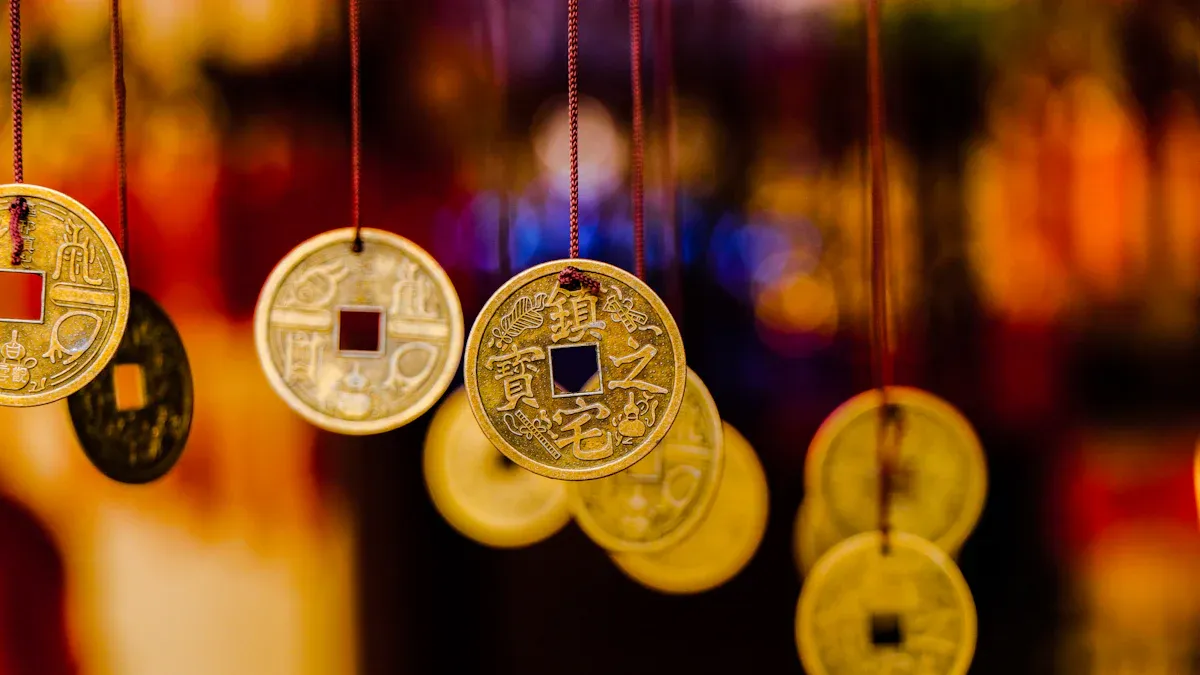
Meaning and Origins
Feng shui means "the way of wind and water." The Chinese characters for wind (feng) and water (shui) show this meaning clearly. Ancient people in China watched how wind moved and how water flowed. They learned that these forces shaped the land and affected daily life. The idea of feng shui started more than three thousand years ago. Archaeologists have found old settlements and cemeteries in China and other countries. These sites show that people used feng shui to plan where to build homes and graves. They placed buildings to avoid strong winds and floods. Scholars like J. J. M. de Groot and Gene Anderson wrote about how Chinese people saw mountains as dragons and used these ideas to stay safe from nature. Houses built with feng shui survived big floods, showing its practical value. Taoist feng shui connects people to the natural world and teaches respect for the land.
Note: Many ancient Chinese sites, such as those found in Victoria, Australia, and along the Santa Clara River, show that people used feng shui principles in their daily lives. These findings help prove the long history and real-world use of feng shui.
Core Principles
The core principles of feng shui come from Taoist beliefs. These principles guide how people arrange spaces to create balance and harmony. Feng shui uses the idea of chi, or life energy. Chi moves through everything. Good chi flow brings health and happiness. Blocked chi can cause problems. The principles of feng shui teach that people should not block the natural flow of energy.
Yin and yang are also important in feng shui. Yin means quiet, dark, and soft. Yang means bright, active, and hard. The principles of feng shui help balance yin and yang in a space. This balance creates peace and supports well-being.
The art of placement is another key part of feng shui. People use the bagua, a special map, to study spaces. The bagua map divides a space into eight areas. Each area connects to a part of life, such as family, wealth, or health. The principles of feng shui show where to put furniture, doors, and windows to support good energy.
Here is a simple table showing the main ideas:
Principle |
What It Means |
How It Helps |
|---|---|---|
Chi |
Life energy that flows everywhere |
Brings health and luck |
Yin and Yang |
Opposite forces in balance |
Creates harmony |
Bagua Map |
Tool to study space and life areas |
Guides placement |
Respect for Nature |
Work with, not against, the land |
Prevents harm |
The principles of feng shui also teach respect for nature. People should build with the land, not against it. Taoist feng shui says that humans are part of nature. The principles of feng shui help people live in harmony with the world. Different schools of feng shui may use special rules, but all follow these main ideas. The bagua and the bagua map remain central tools for understanding energy in a space.
Taoist Philosophy
Harmony with Nature
Taoism teaches that people live best when they follow the natural world. (To learn more about how Taoism teaches these principles, please check out our article "How Taoism Teaches Us to Learn from Our Feelings".) The philosophy of the tao shows that everything in life connects through energy. Feng shui uses this idea to help people find balance and harmony in their surroundings. Taoist philosophy says that the flow of energy shapes the world. People who use feng shui look for ways to support this flow of energy in their homes and workspaces. They believe that a strong connection to nature brings health and happiness.
Many scientific articles study how feng shui and Taoism work together. These studies show that feng shui’s roots in Taoism focus on harmony and balance. Researchers find that feng shui principles match ideas in environmental psychology and sustainable design. Some studies show a link between feng shui and positive feelings in people, but the idea of energy, or qi, still needs more research. Taoist philosophy guides people to respect the land and live with the tao, not against it. This respect for nature helps people feel calm and safe.
Wu Wei and Energy Flow
Wu wei is a key idea in Taoism. It means acting in a natural and effortless way. Taoist philosophy teaches that people should not force things. (To learn more about Wu Wei and its applications in daily life, please check out our article "How Embracing Wu Wei Makes Work Less Stressful".)Instead, they should let the Tao guide their actions. Feng shui uses wu wei by helping people arrange spaces to support the positive energy flow. Katina Jones, a feng shui teacher, explains that feng shui helps energy move in a good way through rooms and buildings.
Taoism’s idea of wu wei shapes how feng shui works with energy.
Feng shui teachers say that positive energy flow comes from natural placement.
Taoist philosophy says that wu wei means acting with the tao, not against it.
The Internet Encyclopedia of Philosophy explains that wu wei is not doing nothing. It means acting in a way that matches the flow of energy in the world. Feng shui uses this idea to help people live in balance with the tao. People who follow feng shui believe that their energy connects to the cosmos. This connection to nature and the universe is a key part of Taoism. Feng shui helps people find balance, harmony, and a peaceful flow of energy in daily life.
Feng Shui in Daily Life
Home and Space
Feng shui shapes the way people arrange their space at home, in gardens, and in offices. Many people use the bagua to study each space and decide where to place furniture or decorations. The bagua map divides a space into different life areas, such as health, family, and wealth. People often put plants near windows to enhance energy and bring nature inside. In a living room, they may place a sofa facing the door to welcome positive energy flow. Offices use feng shui by keeping desks clear and placing them in a spot with a good view of the door. Gardens can follow feng shui by using curved paths and water features. These practical applications of feng shui help transform your living space into a place that feels balanced and calm.
Tip: Use the bagua to check each space and see which areas need more light or color.
A simple table shows how feng shui works in different spaces:
Space |
Feng Shui Example |
Purpose |
|---|---|---|
Home |
Sofa faces door |
Welcomes energy |
Office |
Desk with clear view |
Focus and calm |
Garden |
Curved path, water feature |
Harmony with nature |
Well-being and Abundance
Feng shui supports well-being by helping people create a space that feels safe and peaceful. When a space has good energy, people feel less stress and more happiness. The bagua helps people find which part of a space connects to health or wealth. Adding plants or water in these areas can enhance energy and support growth. People who use feng shui often report better sleep and more focus. They believe that a balanced space brings abundance and joy.
Feng shui does not just change how a space looks. It changes how people feel in that space. A space with clear paths and natural light can lift moods and help people feel more connected to the world. Feng shui shows what makes a space healthy and full of life.
Importance in Taoism
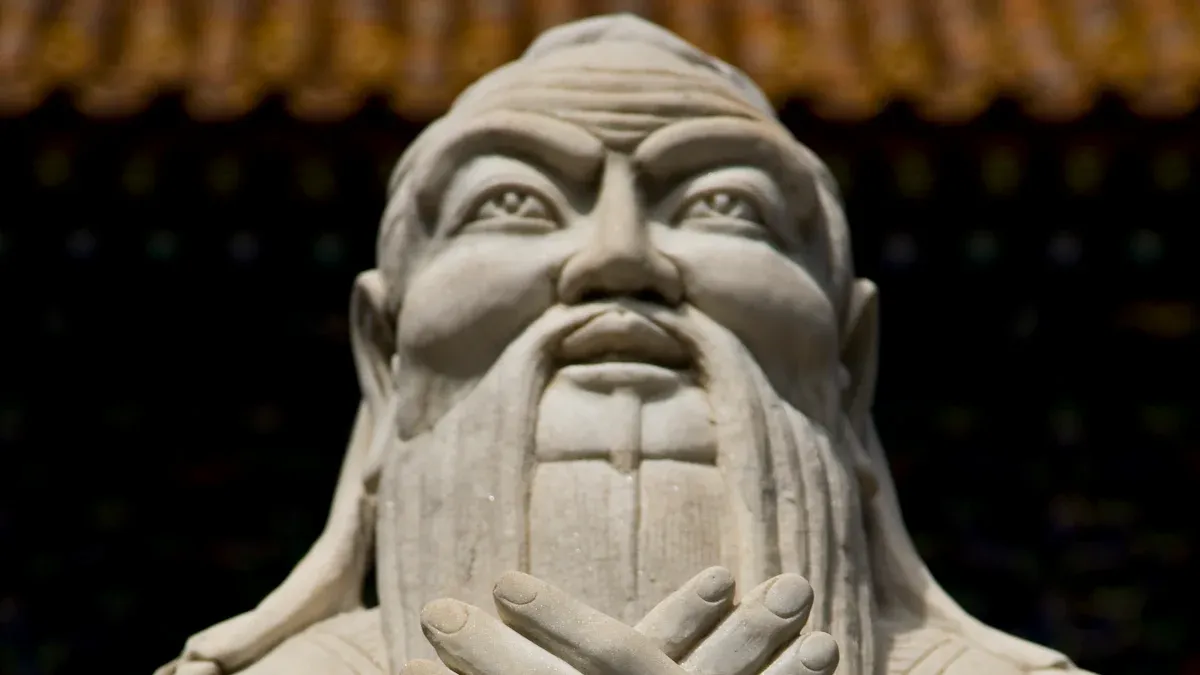
Spiritual Significance
Feng shui holds deep spiritual meaning in Taoism. (To learn more about the spiritual aspects of feng shui, please check out our article "Taoism and the Art of Letting Go in Relationships".) People who follow Taoism believe that the world is full of energy. This energy, called chi, moves through everything. Taoist feng shui teaches that people can guide this energy to protect their spirit and bring peace. Many Taoist masters use feng shui to keep away bad luck and invite good fortune. They see feng shui as a way to connect with the Tao, the natural path of life.
Taoism values balance and harmony. Feng shui helps people find this balance in their homes and lives. When people arrange their spaces with care, they show respect for the Tao. Taoist feng shui uses simple actions, like placing a door or a bed in the right spot, to support spiritual safety. These actions help people feel calm and safe. Taoism teaches that the spirit needs a peaceful place to grow. Feng shui gives people tools to create that place.
Many Taoist temples use feng shui in their design. The placement of doors, windows, and altars follows rules from aoist feng shui. These rules help the temple become a place where the Tao flows freely. People who visit these temples often feel a sense of peace. Taoism says that this peace comes from living in harmony with the Tao. Feng shui makes this harmony possible.
Note: Taoist stories often tell about wise masters who use feng shui to help others. These stories show that feng shui is not just about objects. It is about living with the tao every day.
Living with the Tao
Feng shui shows people how to live with the Tao. Taoism teaches that the Tao is the natural order of the world. People who follow Taoism try to move with the Tao, not against it. Feng shui gives them a way to do this in daily life. The I Ching and Tao Te Ching, two ancient books, explain how to live in harmony with the Tao. The I Ching talks about change, balance, and the cycles of nature. It says that people should watch the world and learn from it. Feng shui uses these ideas to help people organize their space and time.
The Tao Te Ching teaches that people should live in the present moment. It says that true peace comes from following the Tao. Feng shui supports this by helping people create spaces that feel natural and calm. A story from Taoism tells about a feng shui master who helps a widow find peace by accepting her life as it is. This story shows that feng shui is about more than just moving furniture. It is about accepting the Tao and living with the flow of life.
Taoism uses feng shui to teach respect for nature. People who follow Taoism believe that every part of the world has its own place. Feng shui helps them find that place. When people use feng shui, they learn to listen to the Tao. They see that every action, even a small one, can bring them closer to harmony. Taoism says that living with the Tao brings happiness and health.
A simple list shows how feng shui helps people live with the Tao:
Guides people to respect the natural world
Teaches balance in daily life
Helps people accept change
Supports spiritual growth
Brings peace and harmony
Taoism and feng shui work together. Taoist feng shui is not just a set of rules. It is a way to live with the Tao. People who follow taoism use feng shui to protect their spirit and find their place in the world. The teachings from the I Ching and Tao Te Ching remind everyone that harmony with the Tao is the key to a good life.
Fengshui and Taoism share a deep connection through their focus on the Tao and the pursuit of balance and harmony. Fengshui’s principles reflect Taoist values by guiding people to live with the Tao and respect nature.
Many communities use fengshui to shape their environment, preserve cultural identity, and support well-being.
Fengshui harmonizes spaces with natural energy to improve health, prosperity, and relationships.
Practical tips include arranging furniture for togetherness, using plants and water for vitality, and refreshing the atmosphere at home.
Fengshui’s blend of philosophy and daily practice helps people experience the tao in every part of life.
FAQ
What is the main goal of fengshui?
Fengshui aims to create harmony between people and their environment. It helps guide the flow of chi, or life energy, to support health, happiness, and balance in daily life.
What does the bagua map show?
The bagua map divides a space into eight areas. Each area connects to a part of life, such as family, wealth, or health. People use the bagua to guide where to place objects.
What makes fengshui important in Taoism?
Fengshui reflects Taoist beliefs about living in balance with nature. It teaches respect for the natural world and helps people follow the Tao, or the natural order of life.
What are common fengshui tips for the home?
Place the sofa facing the door.
Keep pathways clear.
Add plants for fresh energy.
Use natural light when possible.
Tip: Small changes can improve the energy in any room.
What is chi in fengshui?
Chi means life energy. Fengshui teaches that chi moves through everything. Good chi flow brings health and luck. Blocked chi can cause problems in life and space.
See Also
How Taoism Teaches Us to Learn from Our Feelings
